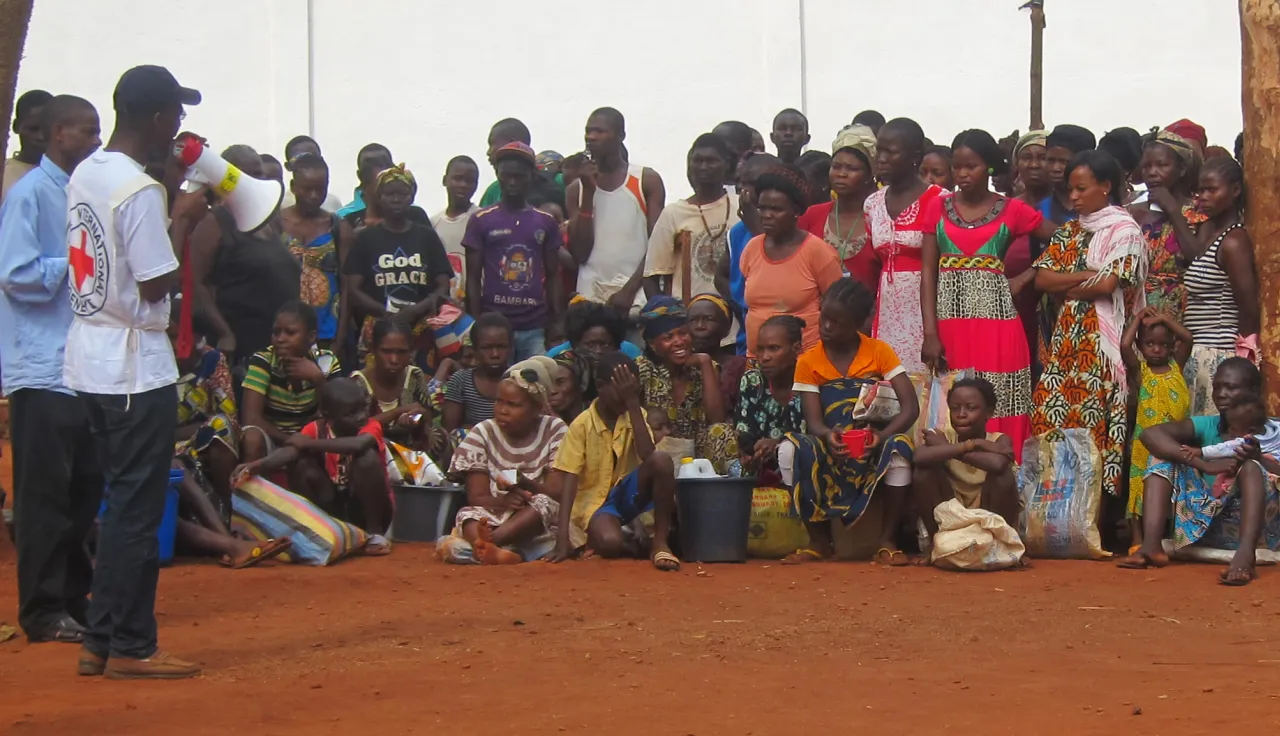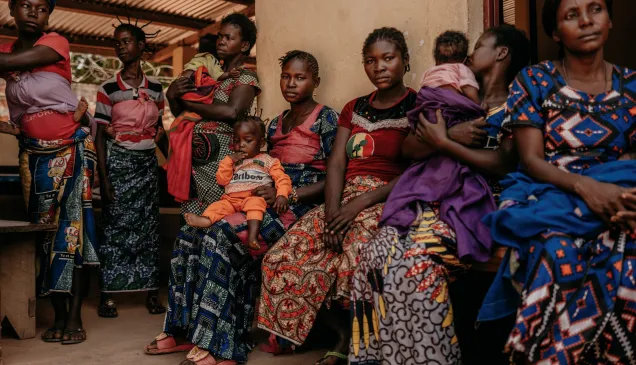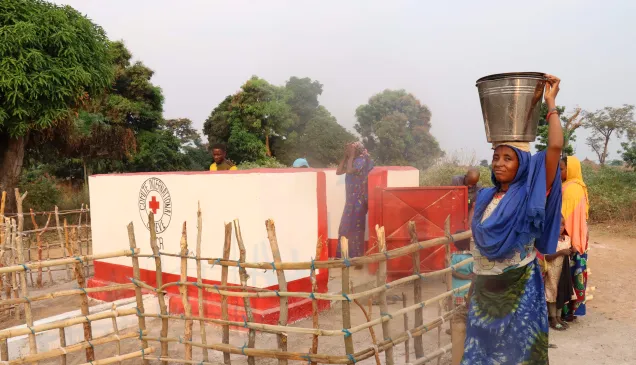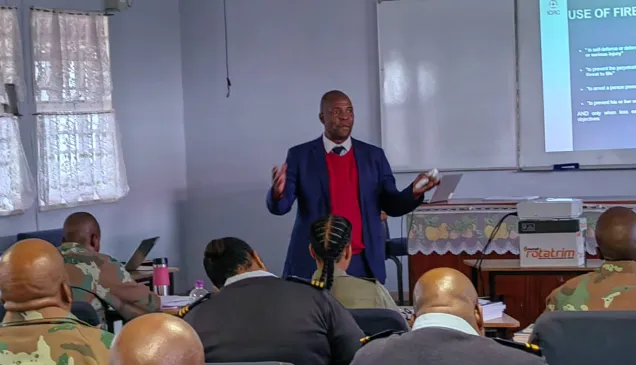Violence has been on the rise again in the capital Bangui in recent weeks, with reports of armed robberies and abductions in neighbourhoods in the north of the city. As a result, humanitarian workers have been forced to restrict their movements, which could hinder relief operations and have a detrimental impact on communities that depend on humanitarian aid.
Meanwhile, in other towns and villages, crime is rife and civilians continue to bear the brunt of violence at the hands of armed groups. On 27 January, for instance, tensions arising from the presence of armed men spilled over into clashes in several villages between Kaga Bandoro and Botto. Many people fled towards Kaga Bandoro in search of safety.
Most of the inhabitants of M'brès, a village 90 kilometres south-east of Kaga Bandoro, were also driven from their homes in December because of fighting between armed groups. The town of Bambari has also been the scene of violence since the end of 2014. As is all too often the case, civilians have been targeted in acts of reprisal by armed men, their property looted and their homes burnt down.
In Botobadjia, Ndassima and other villages in the vicinity of Bambari, many people have been wounded and several killed in clashes between armed groups. Thousands of people trying to travel home at the beginning of January were forced to return to makeshift camps or to take refuge again in the bush.

29 January 2015. A displaced woman carries the food she's received from the ICRC. CC BY-NC-ND/ICRC/Ronald Kradjeyo
The situation in towns and villages in the interior also poses serious humanitarian concerns. In the village of Gbangou, located between Damara and Bouca, 210 kilometres to the north of Bangui, over a thousand people have been hiding out in the bush for weeks because they fear for their safety. More than 200 houses have been burnt down by armed men.
"We continue to remind all the parties to the conflict and all weapon-bearers that they may not attack civilians and must spare all those who are no longer in a position to fight," said Jean-François Sangsue, head of the International Committee of the Red Cross (ICRC) delegation in the country.
Between 17 November 2014 and 25 January 2015, together with volunteers from the Central African Red Cross, the ICRC:
- visited and assisted over 650 detainees in various detention facilities nationwide;
- put more than 90 families back in touch with their displaced relatives;
- carried out over 800 medical consultations at Bangui community hospital;
- carried out over 7,000 medical consultations at Kaga Bandoro hospital;
- administered tetanus vaccinations to over 250 children aged between 0 and 12 months and 180 women of childbearing age in Kaga Bandoro;
- performed over 150 operations at Bangui community hospital, and over 30 at Kaga Bandoro hospital;
- cared for at least 10 victims of sexual violence in Kaga Bandoro;
- treated 1,700 malaria cases in Rafaï, Obo and Birao;
- distributed food parcels containing salt, vegetable oil, rice and beans to 18,000 displaced people in Bangui;
- provided household essentials to 2,400 displaced people in Ndassima, between Bambari and Ippy;
- distributed good quality seed and farming tools to 730 market gardeners in Kaga Bandoro and Birao to enable them to resume their livelihoods;
- made daily deliveries of 200,000 litres of clean water to displaced people living in a makeshift camp at Bangui airport;
- kept the water supply running to the town of Ndélé, delivering 250,000 litres of water a day through the national water board (SODECA) network;
- delivered almost 2.5 million litres of water in total to displaced people in Kaga Bandoro;
- made daily deliveries of 50,000 litres of water to displaced people who had taken refuge on the Operation Sangaris military base in Bambari;
- made daily deliveries of clean water to Bambari regional hospital;
- ran awareness-raising sessions on Red Cross activities for over 700 representatives of youth and women's groups in various districts of Bangui;
- ran a training session in Bangui on protection for journalists under international humanitarian law, which was attended by 40 journalists from community radio stations.
For further information, please contact:
Germain Mwehu, ICRC Bangui, tel: +236 75 64 30 07
Thomas Glass, ICRC Geneva, tel: +41 22 730 31 49 or +41 79 244 64 05
Photos: CC BY-NC-ND/ICRC/Berrad Ahmed/Ronald Kradjeyo




